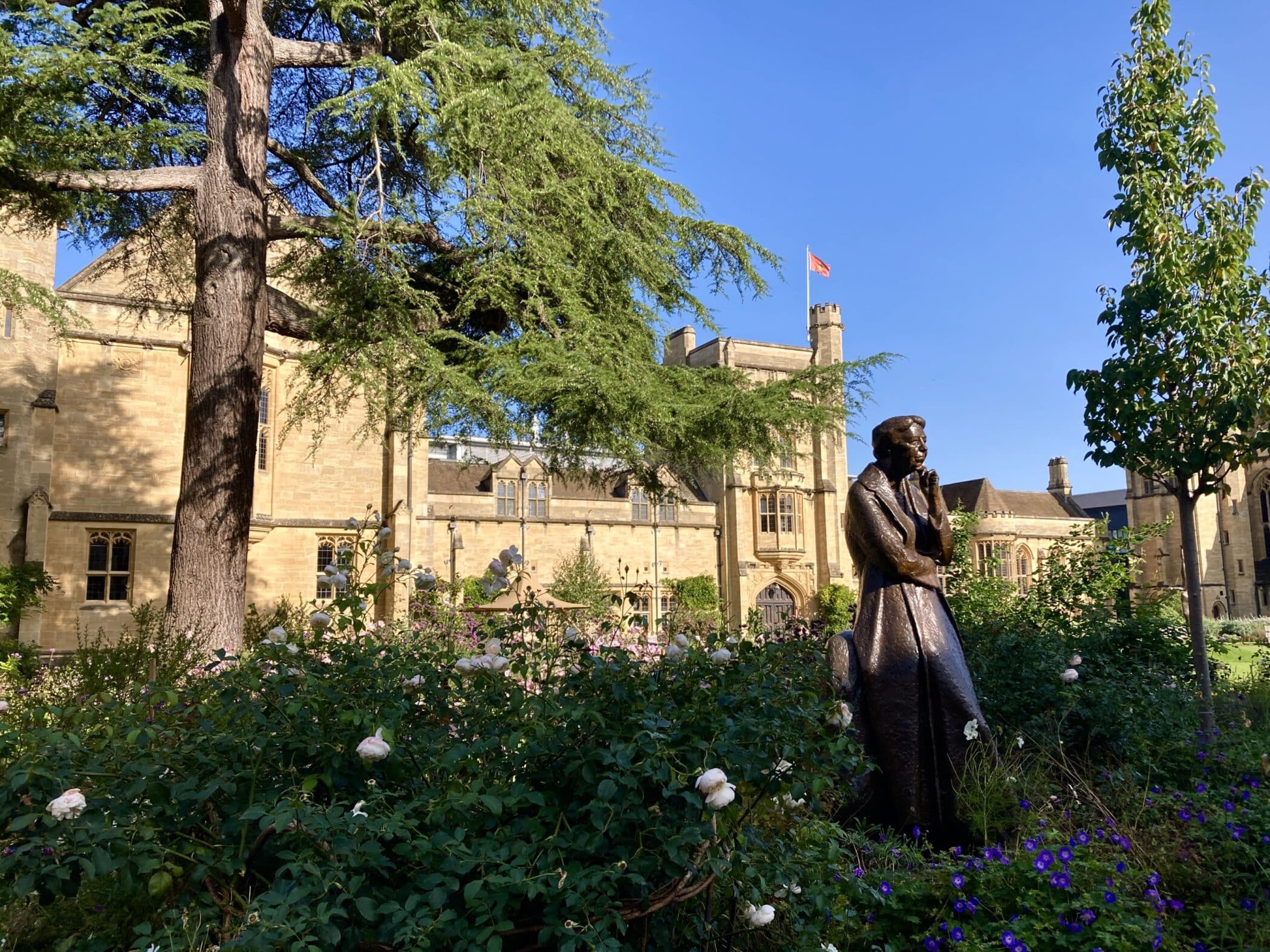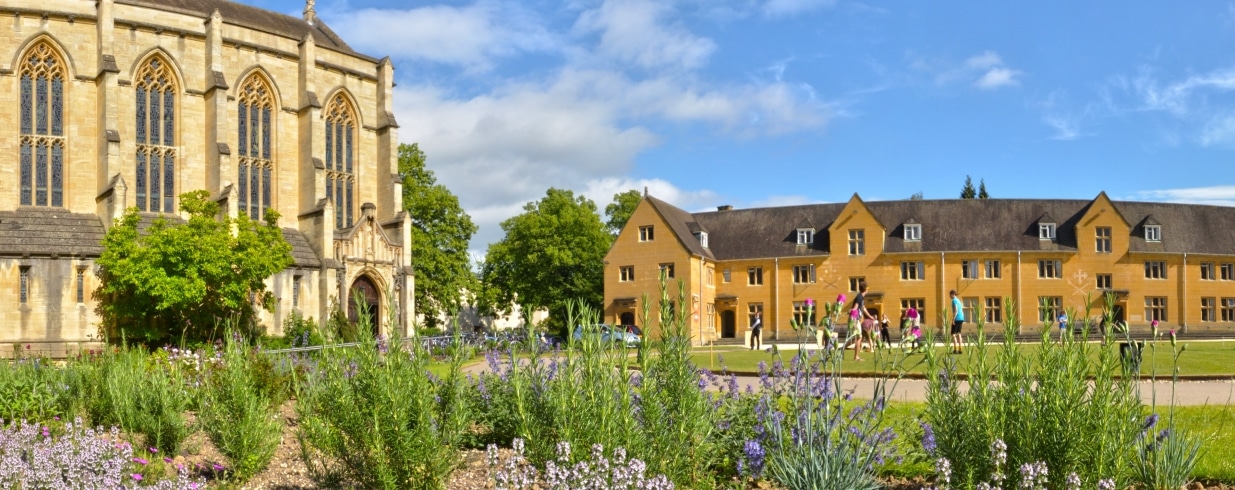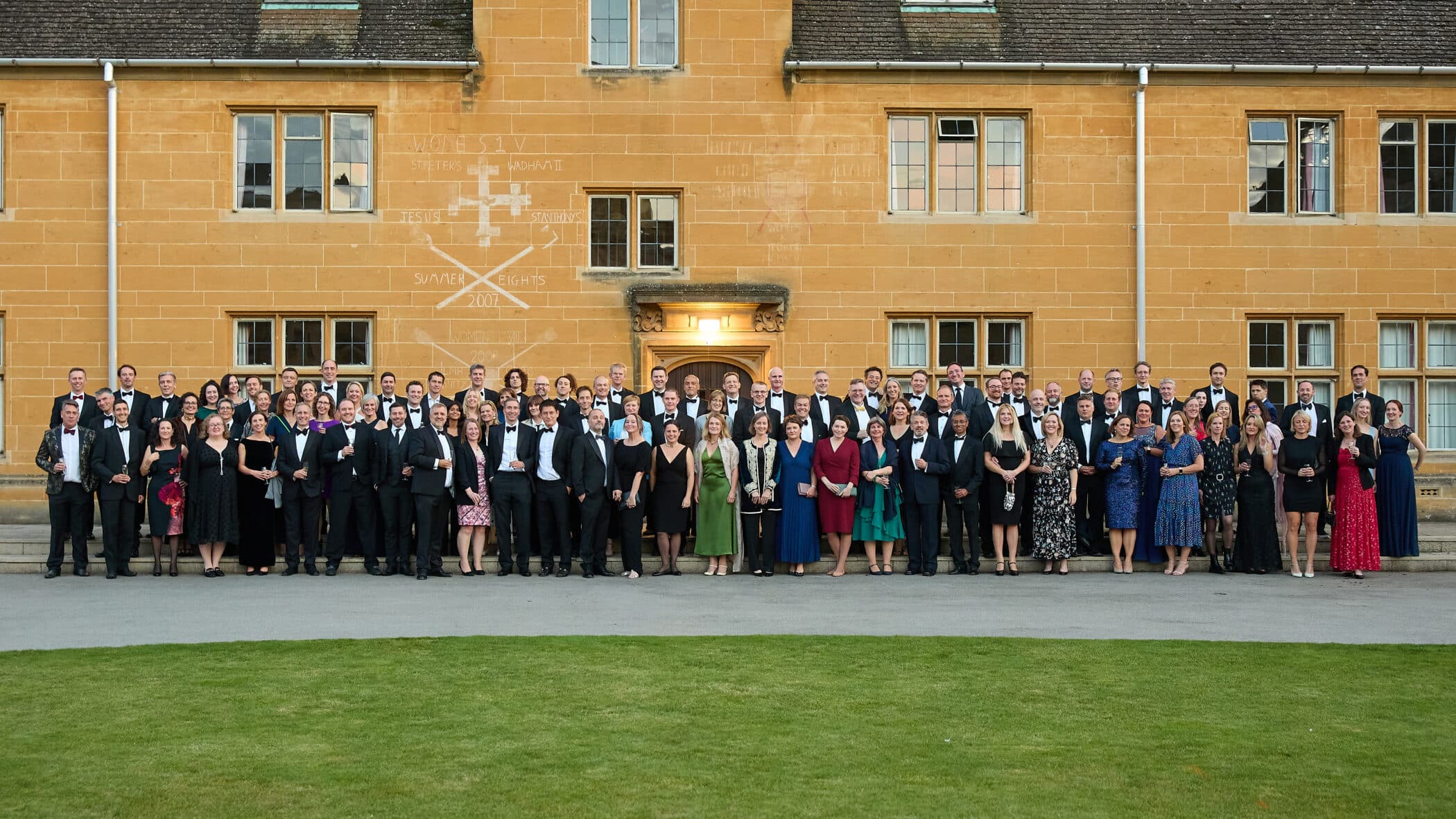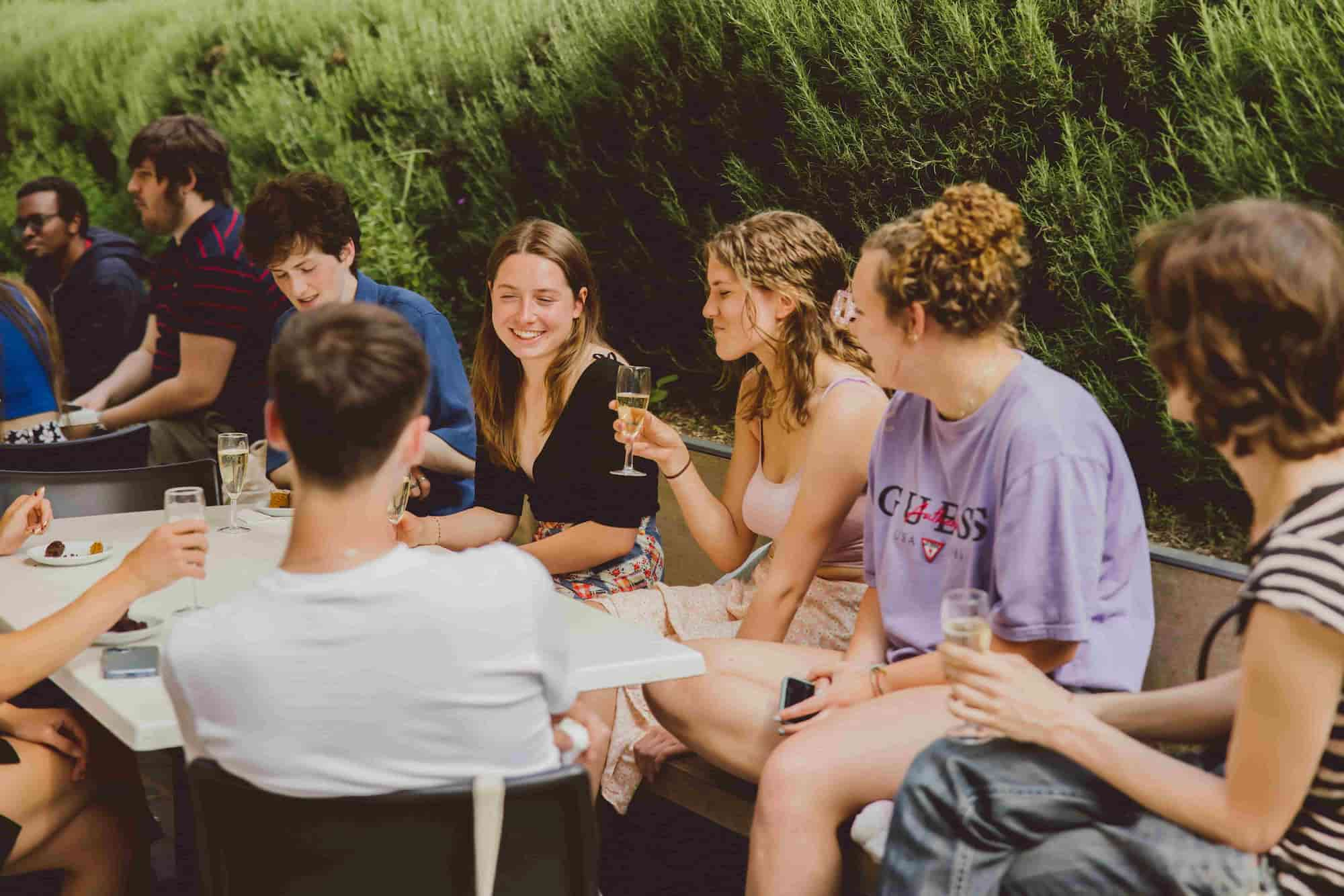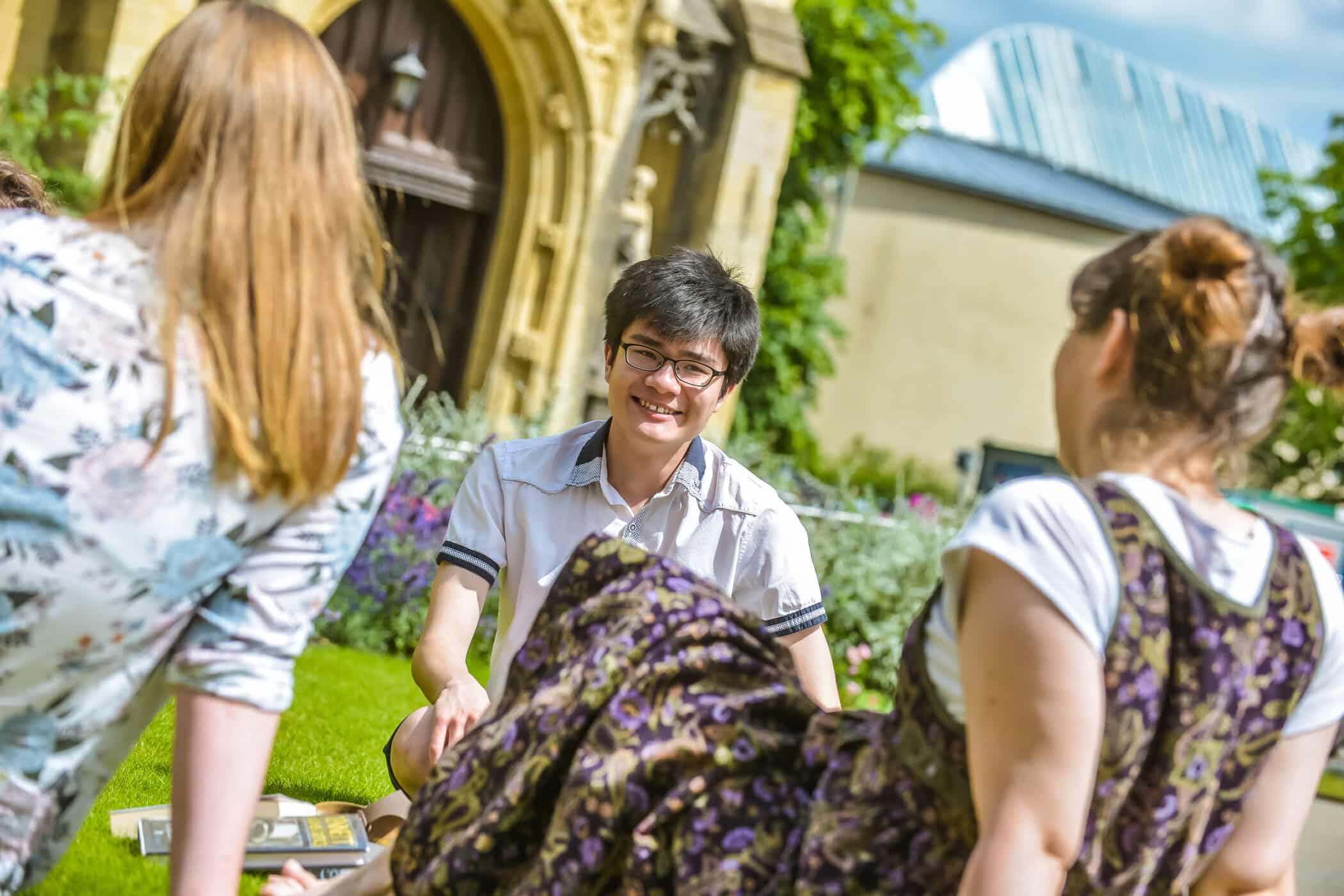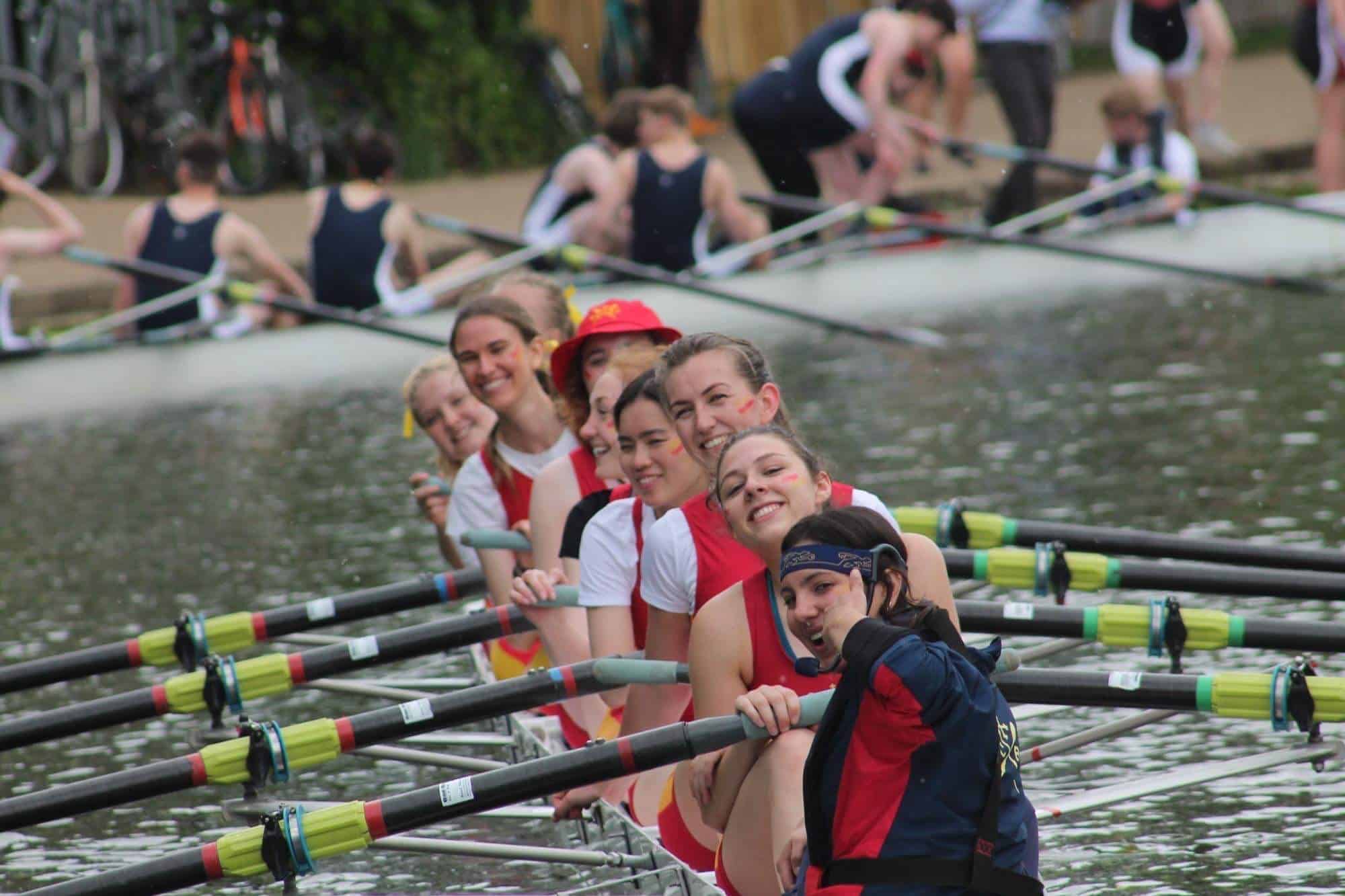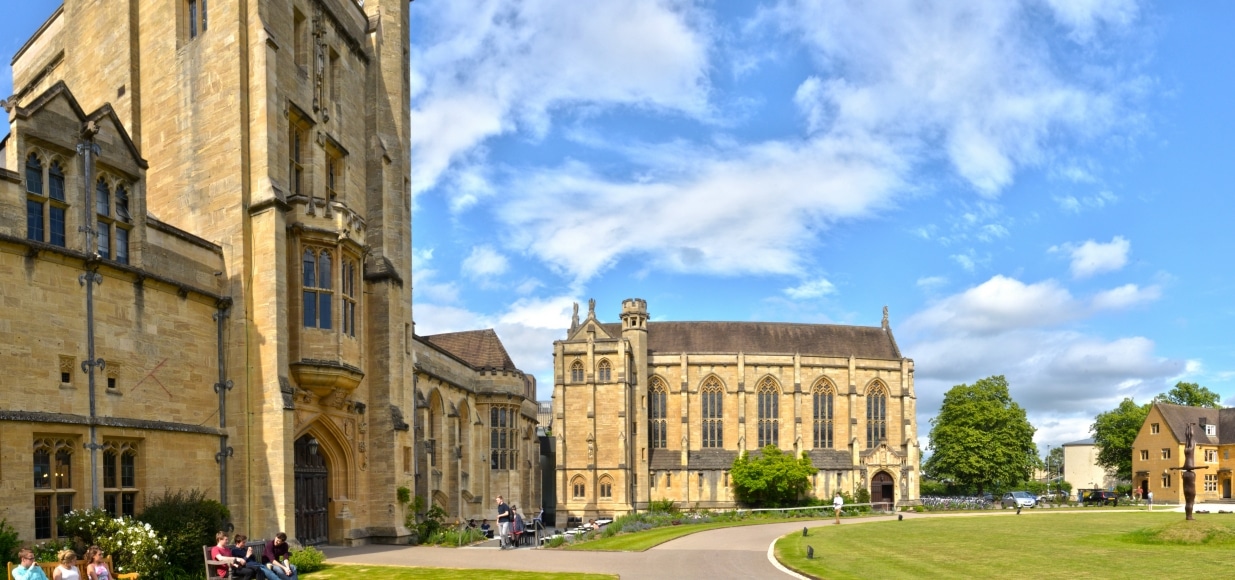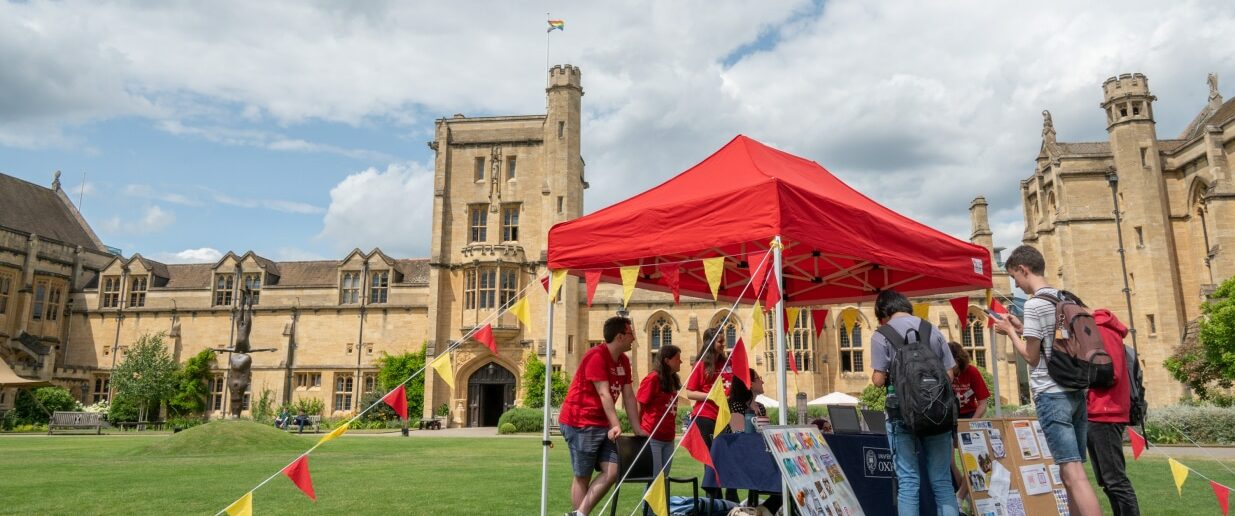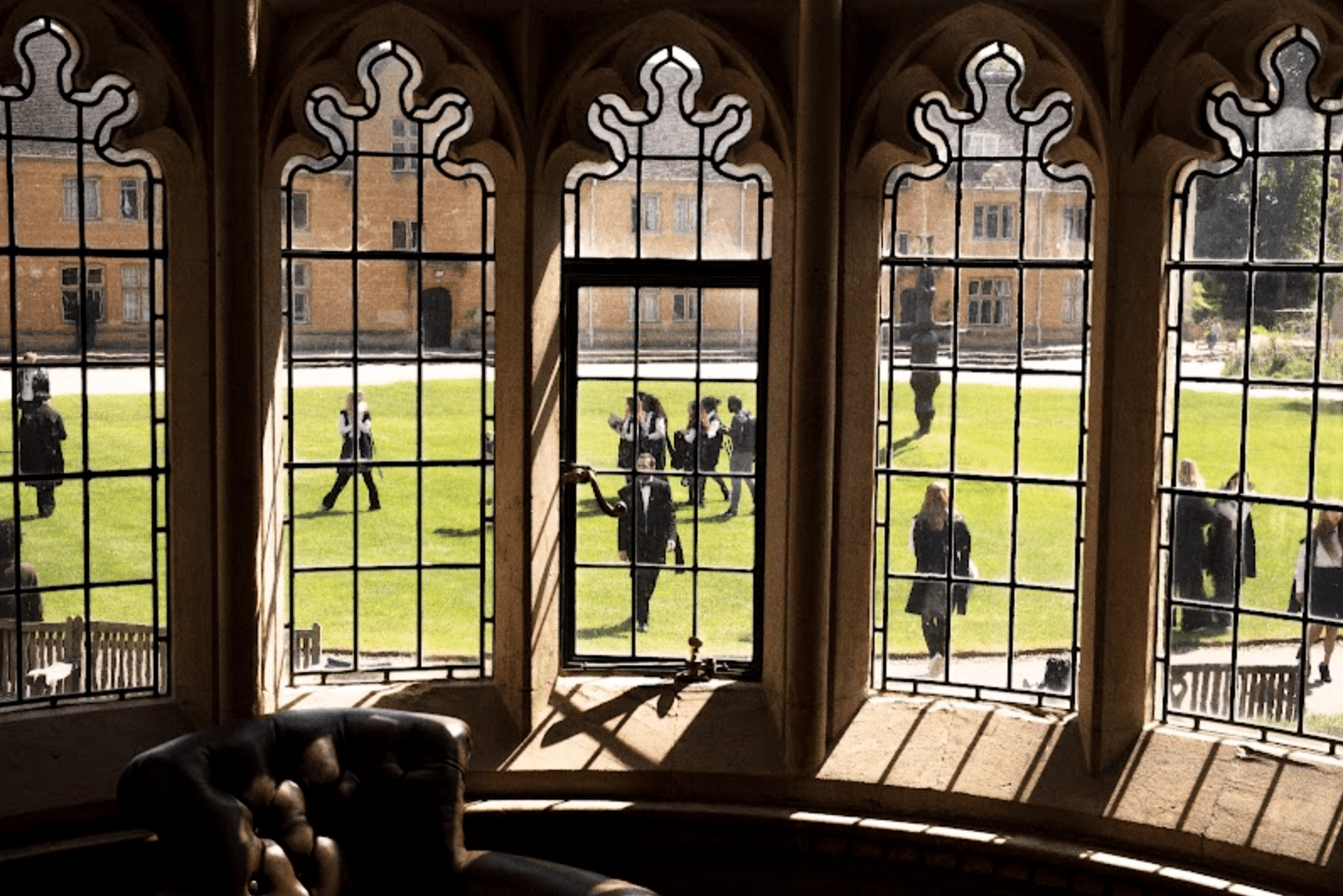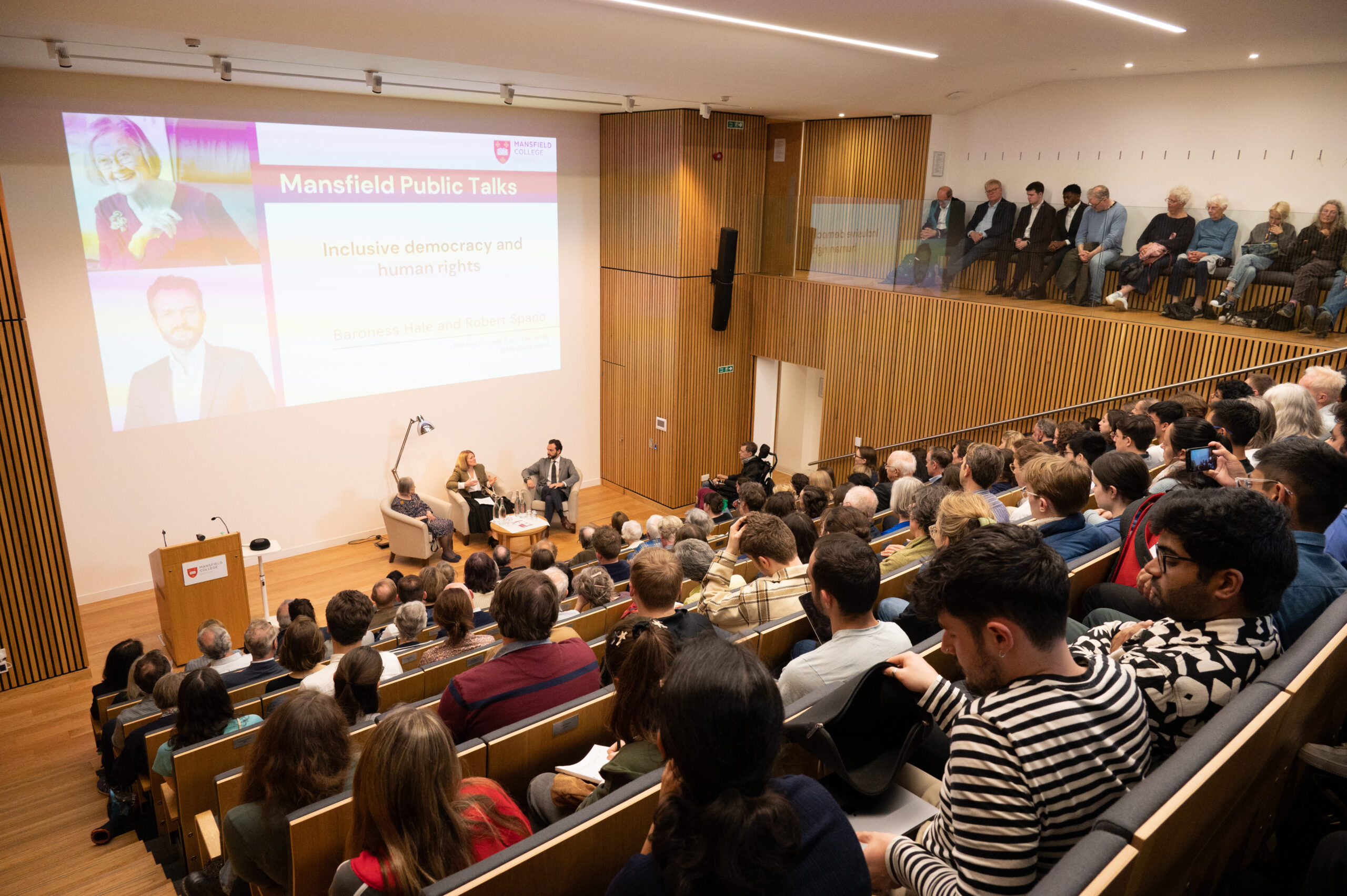Since 1979 we’ve welcomed mixed-gender cohorts to study at Mansfield College. 2020 also marked the centenary of women’s right to matriculate and graduate – in other words, to become full members of the University of Oxford. Here are some of their stories dating back to the early 1900s.
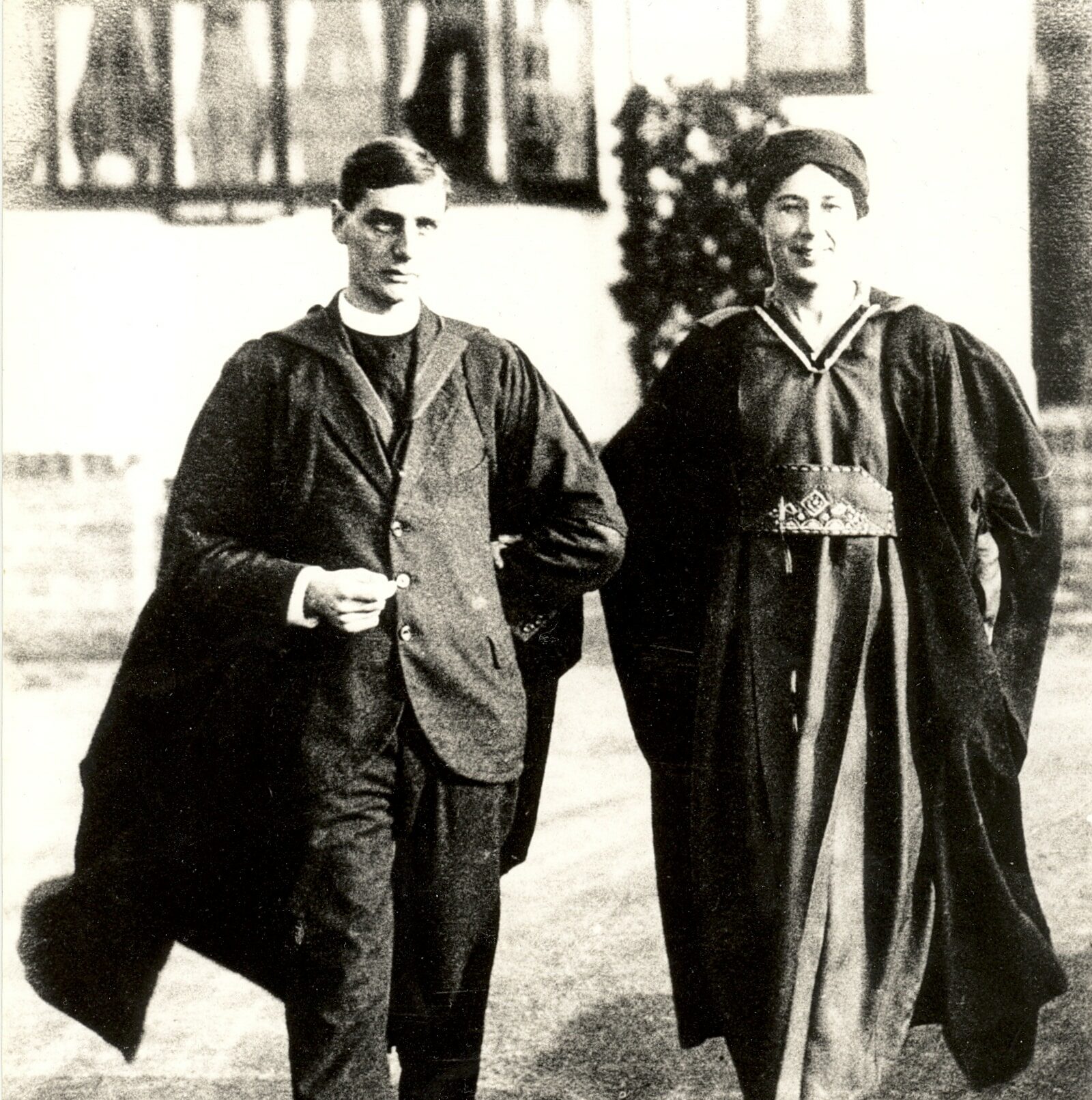
1913 – our first female student
Constance Mary Todd joined us for ministerial training, won the Fairburn Memorial Essay Prize, and showed a particular aptitude for Hebrew. As an active member of the Junior Common Room (JCR), Constance organised conference talks such as Maude Royden’s in 1915 – and served as President from 1915-16. She then became the first English woman to be ordained to London’s Congregational Ministry on 17 September 1917 – alongside Claud Coltman, her fiancée she met at Mansfield.
She dedicated the following years to her ministry – including Cowley Road in Oxford from 1924-1932 – and was a committed pacifist, suffragist and promoter of women’s ordination.
In 1914, Mansfield’s JCR passed a resolution confirming women’s access to the same facilities for theological study as men, although not yet to House meetings.
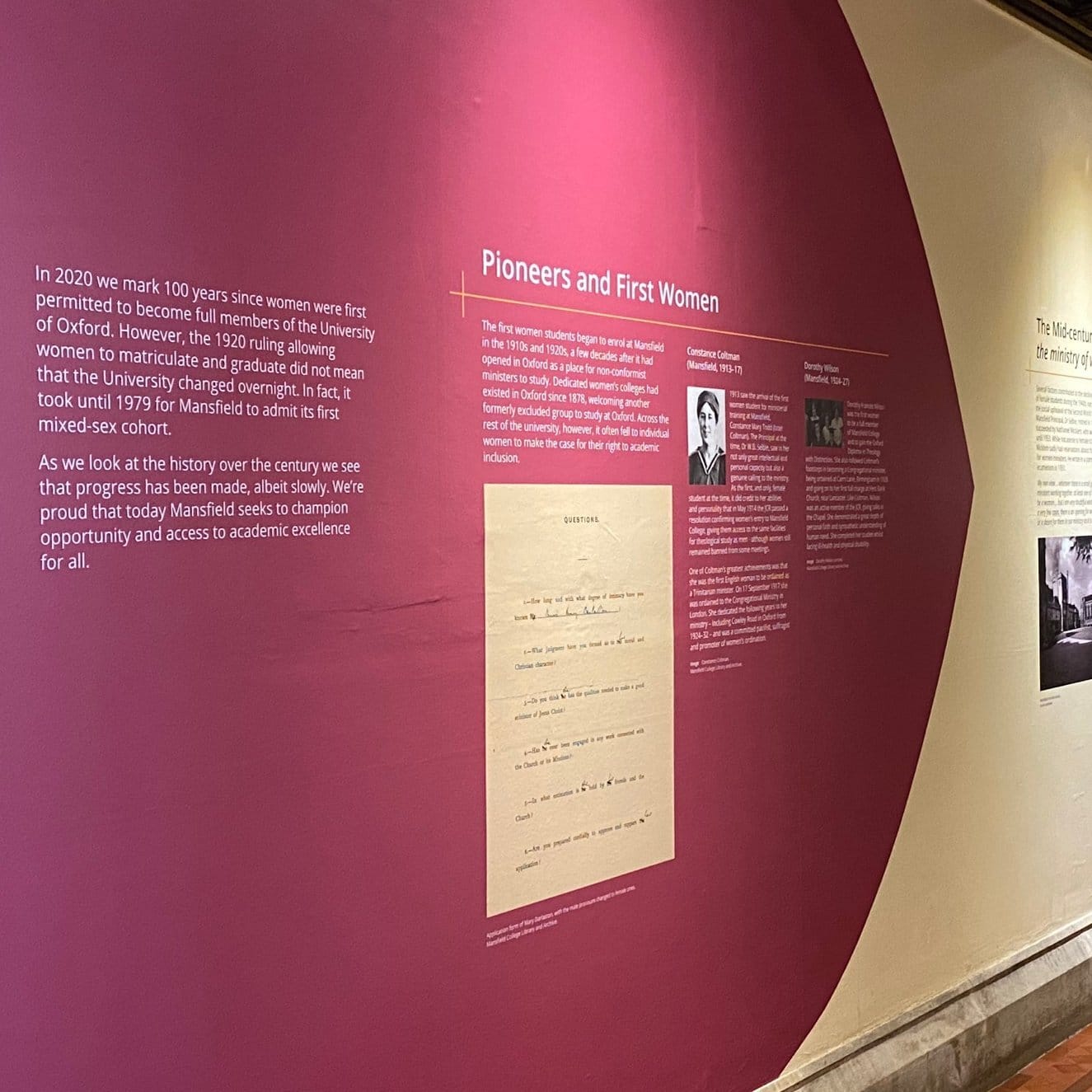
1927 – Mansfield’s first female Distinction
Dorothy Frances Wilson was the first woman to be a full member of Mansfield College and to gain the Oxford Diploma in Theology with Distinction. She also followed Constance’s footsteps in becoming a Congregational minister – ordained at Carrs Lane, Birmingham in 1928 – going on to her first full charge at Hest Bank Church, near Lancaster.
As an active member of the JCR, Dorothy gave talks in the Chapel and demonstrated a great depth of personal faith and sympathetic understanding of human need – all while battling with her personal ill-health and physical disability.
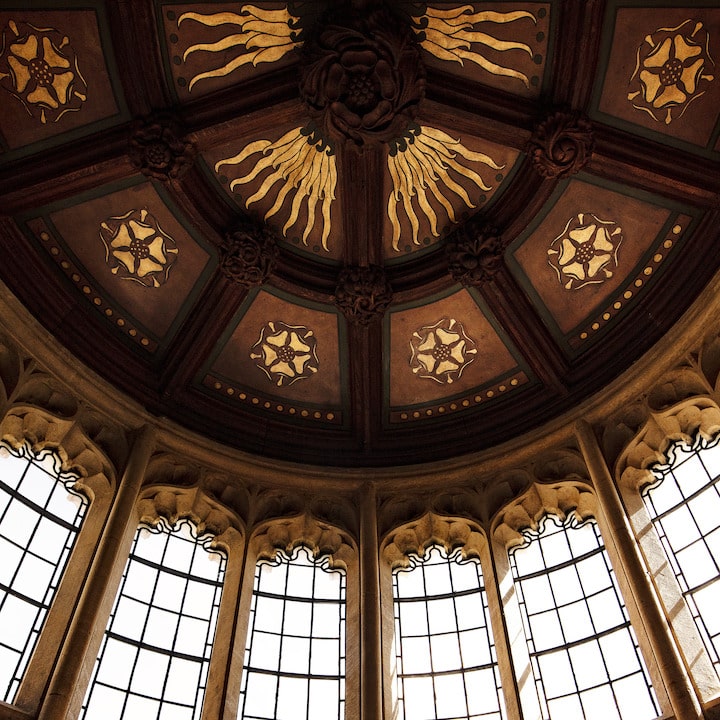
1930 – the JCR’s first female treasurer
Ellen Joyce Rutherford followed the examples of Constance and Dorothy by entering into the full spirit of Mansfield College life, becoming the first female JCR Treasurer in 1930.
She was appointed directly from Mansfield to become Women’s Secretary of the London Missionary Society, an organisation with a worldwide reach.
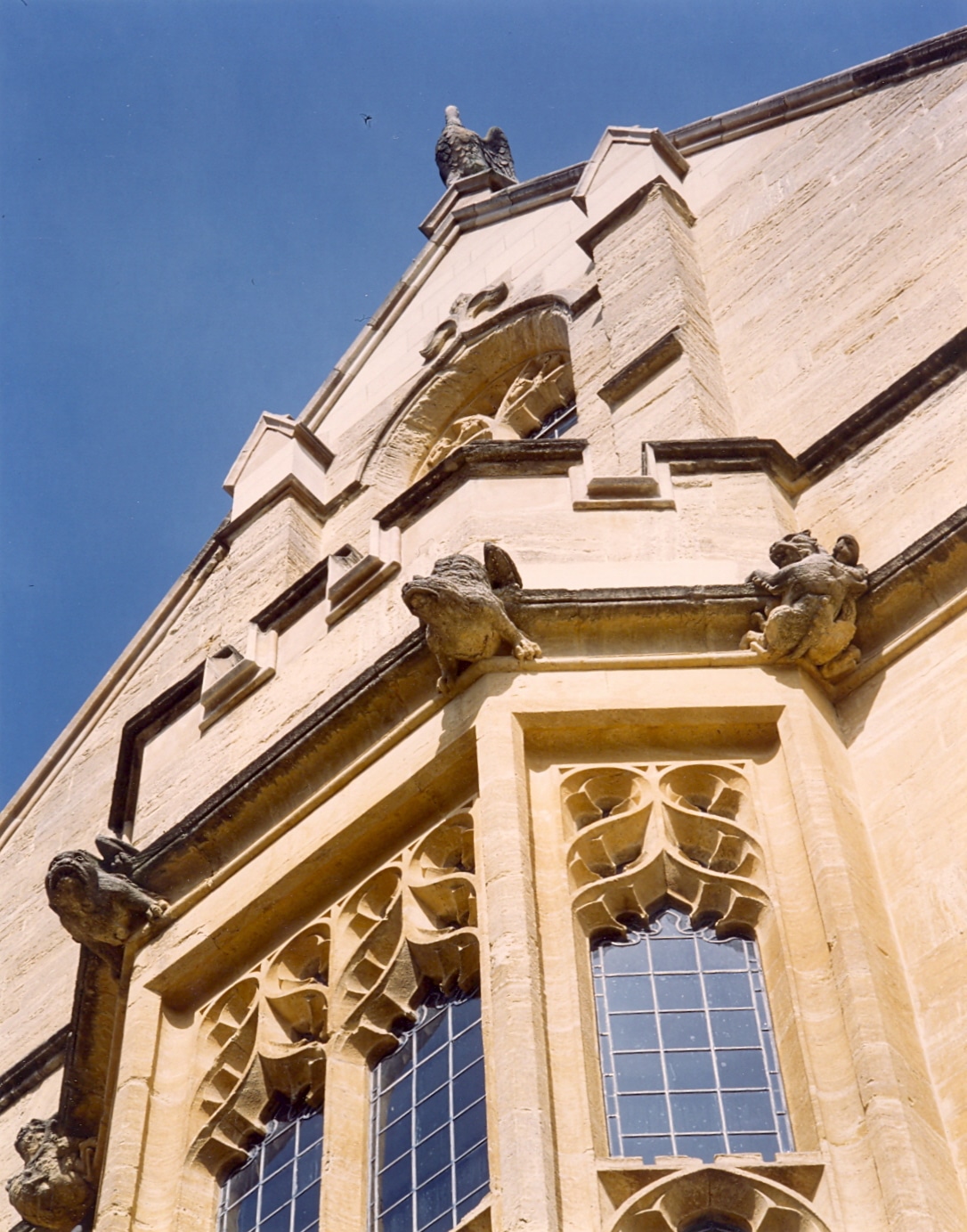
1930 – the JCR’s first female secretary
Irene Robbins joined Mansfield as a mature student after teaching children at preparatory and Sunday schools. She was elected as JCR Secretary and demonstrated great scholarship.
Ordained in 1935, Irene settled at Hungerford in Berkshire, a church which had strong links with Mansfield College. Her commitment to the ordination of women was illustrated by her article in Christian World (25 April 1935, p.16), ‘A Plea for the Ministry of Women’. She wrote “We do not know whereunto the ministry of women will grow, though we know the fine work which the few women who hold pastorates are doing.”
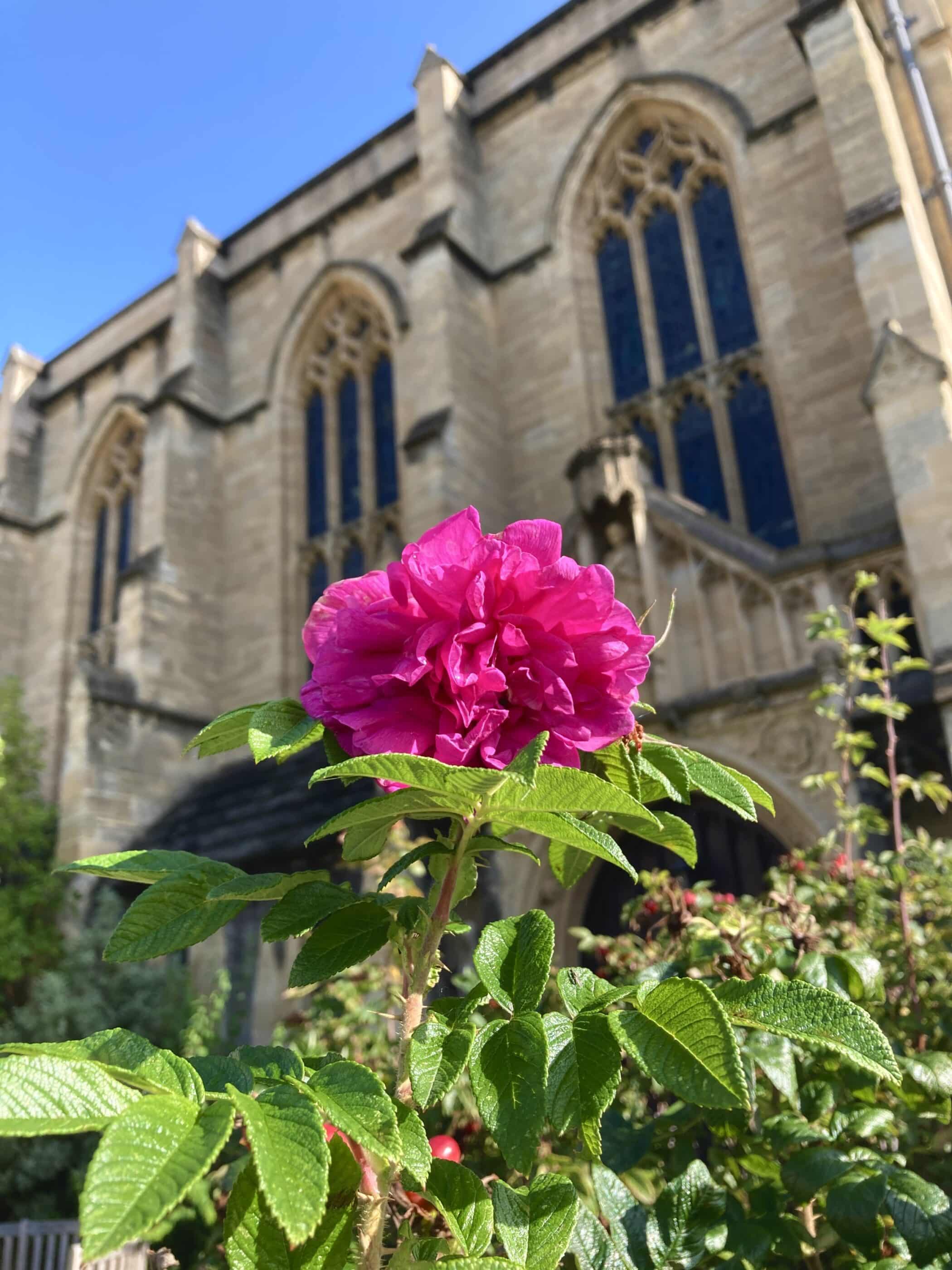
1932 – fewer female students
Several factors contributed towards the decline in numbers of female students during these years, the initial being the massive social upheaval of the Second World War. Dr Selbie retired in 1932 and was succeeded by Nathaniel Micklem, who was Principal until 1953. While not averse to female students, Micklem sadly had reservations about the need for women ministers, as he wrote in a pamphlet on ecumenism in 1951:
“My own view… wherever there is a small group of ministers working together, at least one of them should be a woman… but I am very doubtful whether, except in a very few cases, there is an opening for women ministers or a desire for them in our ministry as it is now”.
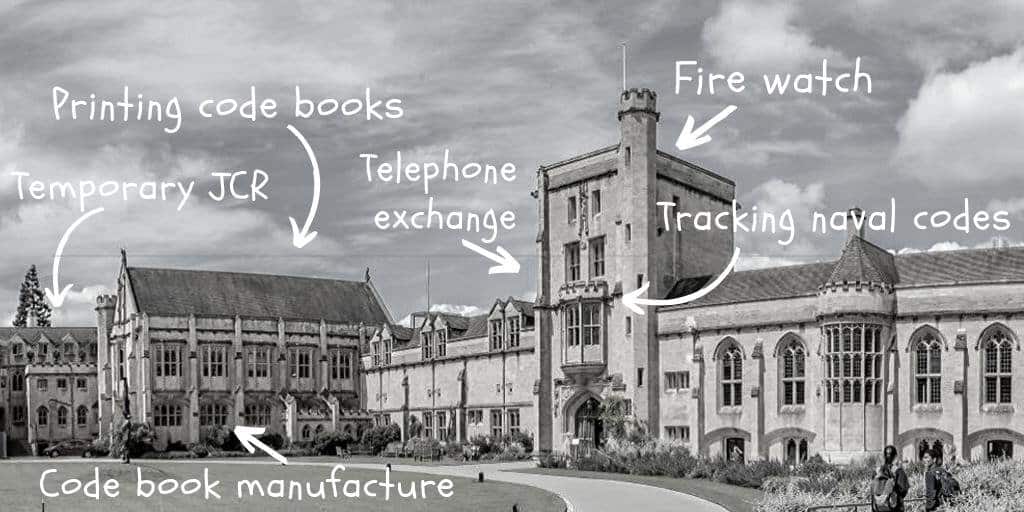
1939 – code-makers at Mansfield
The National Service (Armed Forces) Act in 1939 brought great changes to the composition of the UK’s workforce, as men between the ages of 18-40 were conscripted to serve in World War Two. The war also brought changes to Mansfield, as the College was requisitioned in 1939, under the Emergency Powers (Defence) Act by the Government Codes and Ciphers Division (a precursor to the modern-day GCHQ).
The arrival of these code-makers, known as the Construction Section, meant that suddenly, Mansfield was largely occupied by civilian women. Their work in Naval Communications was vital to national security.
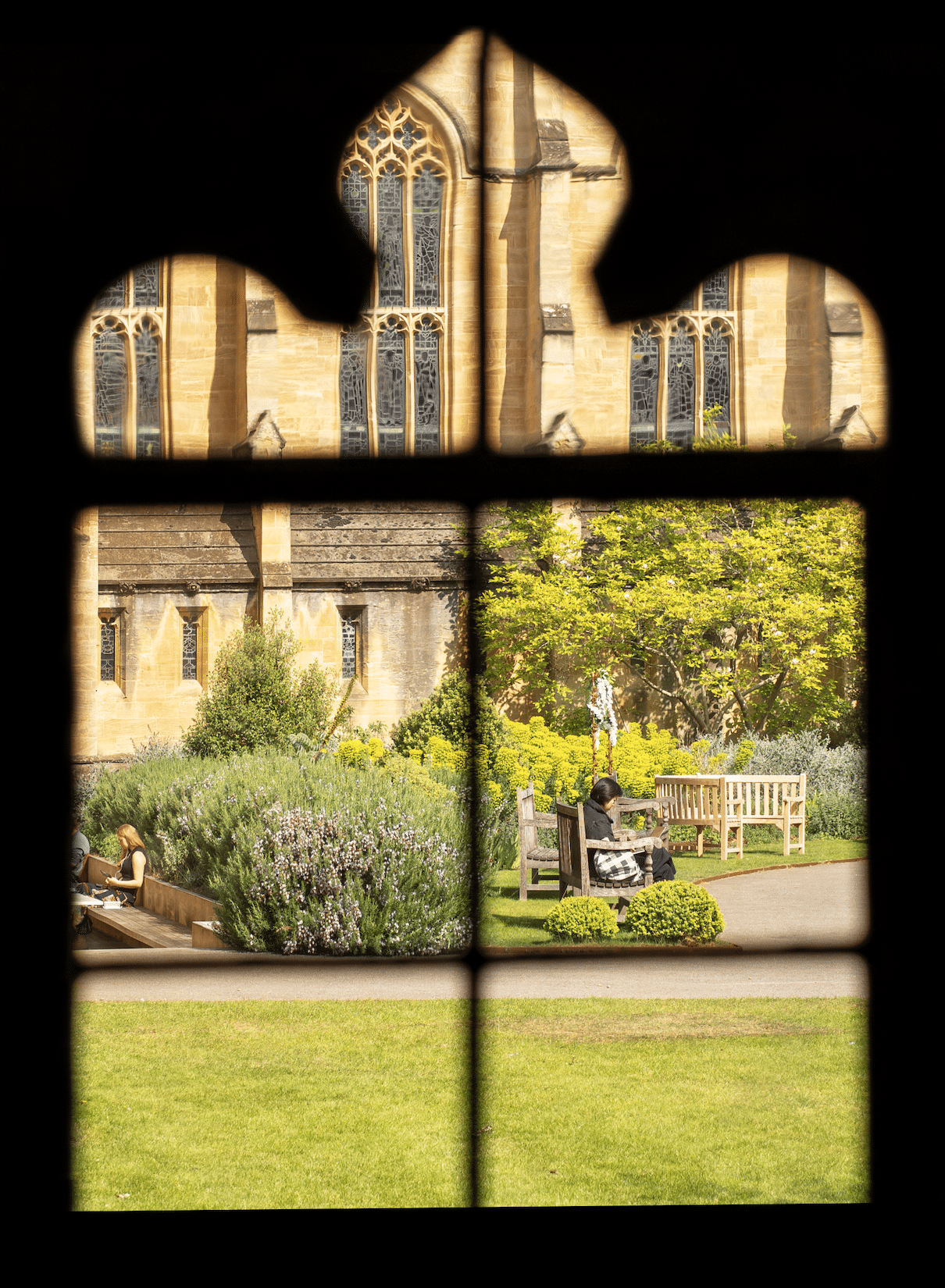
Bletchley Park at Mansfield
An in-house magazine called The Monitor featured a satirical poem called ‘The Ten in the Tower’. The author of the verses is unknown, but we know it was written by the first of several members of the British Women’s Royal Naval Service to join the men in their separate activities. The tongue-in-cheek verses joke about the various naval officers who were in charge of the operations, and is an interesting artefact of the extremely gendered hierarchies and attitudes of the time.
“At Mansfield College, Mansfield Road,
We labour, making many a…ssh.
Two hundred girls, all shapes and ages
And ten strong men all wise as sages”
Courtesy of Bletchley Park Oral History project
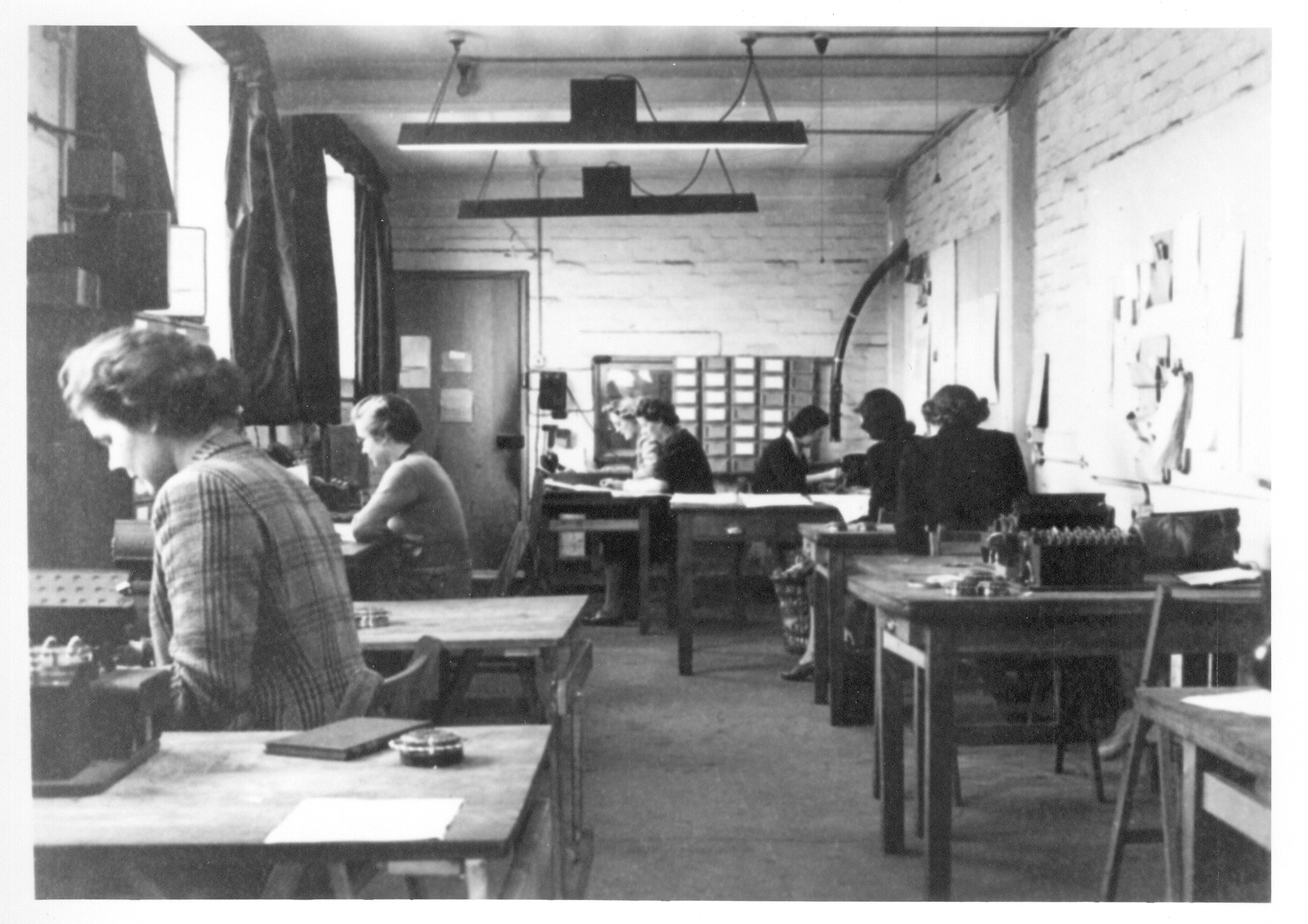
June Coppock’s code-maker experience
“All the colleges of Oxford University had been taken over by government ministries… Mansfield had the Foreign Office; also in Mansfield Road was Manchester College which was occupied, I think, by Cartography.
Our job in Room K was to record every Naval message, whether sent by cable or wireless, from Royal Navy or Merchant Navy ships, or shore establishments. We recorded them in lead-weighted books, the same as on-board ships, which in an emergency could be ditched overboard, and sink. Where we would sink them if they had to be disposed of in Oxford I don’t know – the Isis probably!
Our main purpose was to ensure that no code was used too often. We would send the information off to Bletchley Park and they would probably arrange for a different code to be issued.”
Text and photo courtesy of Bletchley Park Oral History Project.
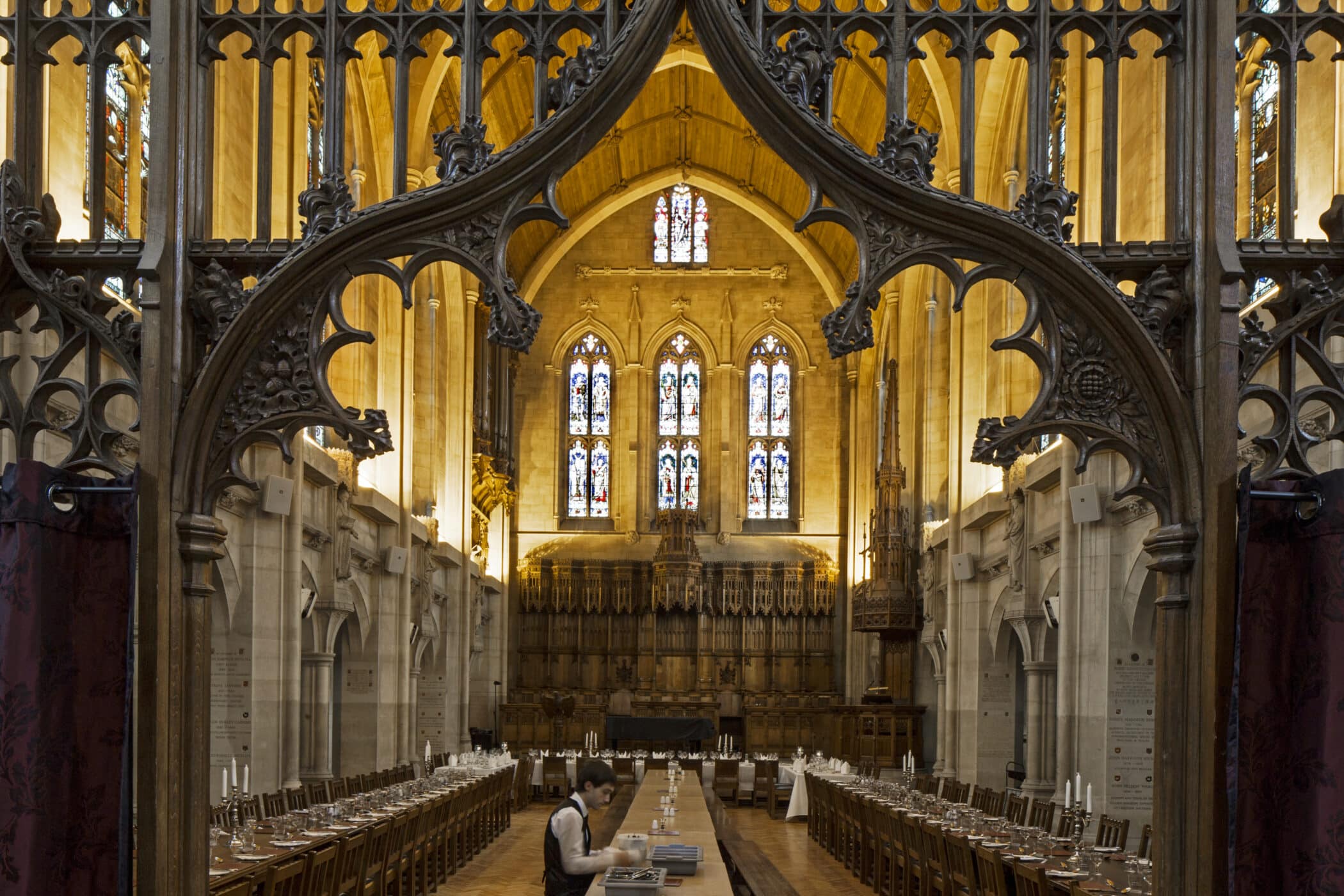
1951 – a difficult Mansfield experience
Marian Thorpe arrived at Mansfield in 1951. Her father had also been a Mansfield College student. She was not allowed to have meals in College – except on Sermon Class evenings – or to dine in Hall on the Wednesday evenings when she had preached in chapel at the pre-dinner service.
Due to a mixture of family and personal reasons, she wasn’t ordained until 1975, in Scotland. Part of the reason for the delay was the difficulty for married women ministers being called by congregations to a pastorate. From 1978 until 1992 she worked in Mastrick, Aberdeen.
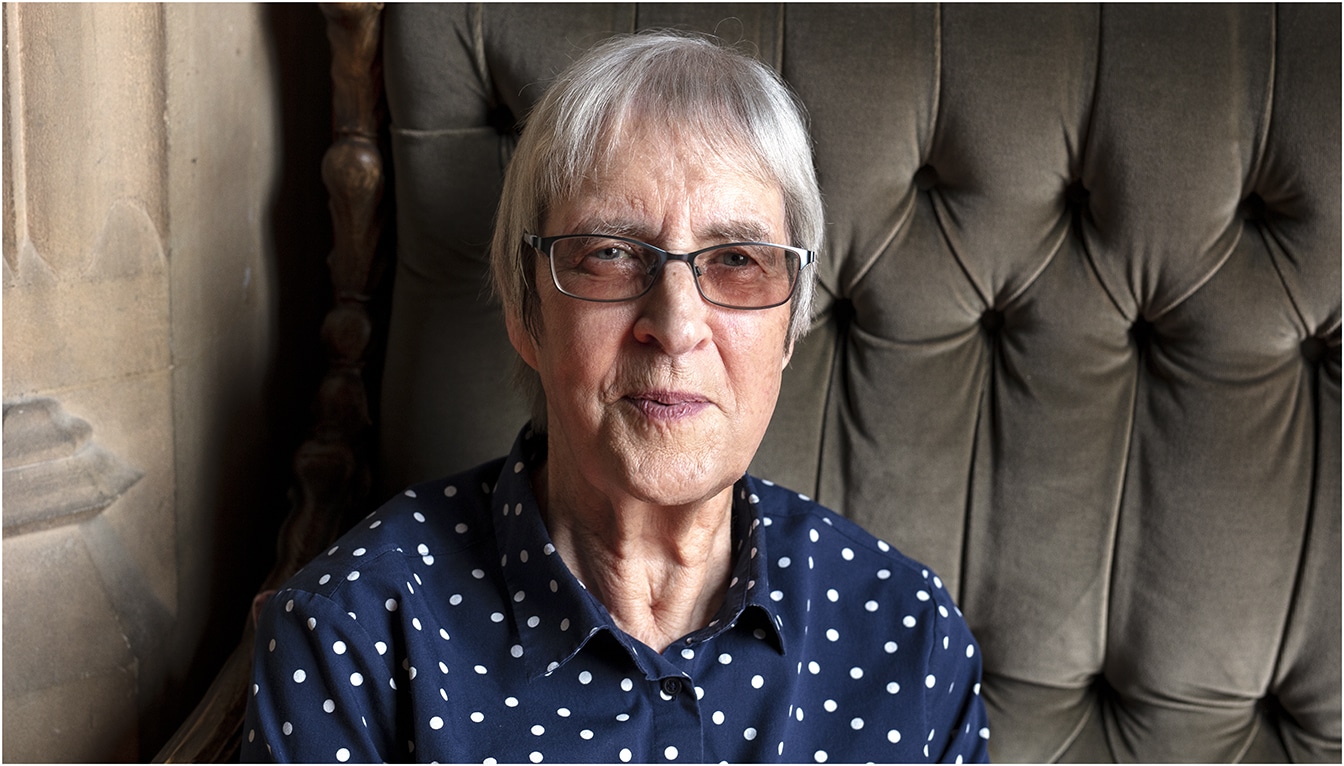
1970s – women in the Senior Common Room (SCR)
Pamela Busby (now de Witt) was the first woman member of the SCR. Pamela was a Lecturer in English from 1971 to 1978
Next came Lecturer in Mathematics, Janet Dyson, who joined the SCR in 1977.
Photo: Janet Dyson
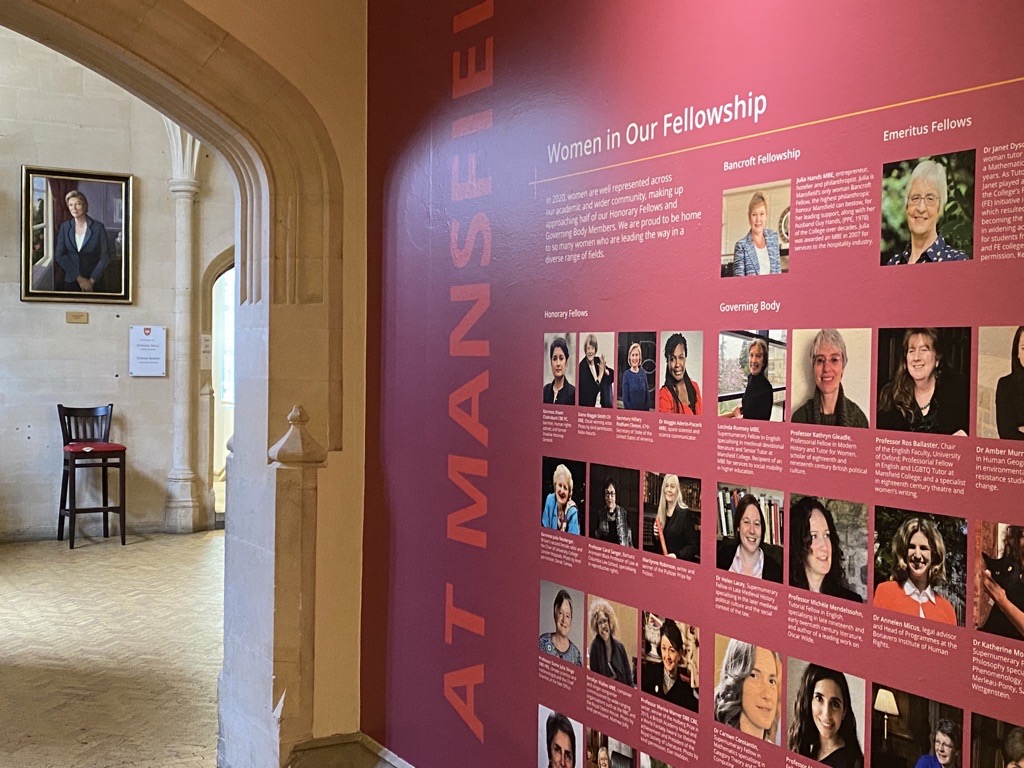
1979 – the first mixed cohort
“I’d been at an all-girls school for 10 years. My teachers had recommended applying to a women’s college, but at that time I really wanted a change. Joining what was essentially a men’s college as the first intake of women undergrads wasn’t necessarily the plan, but it didn’t feel intimidating, it felt exciting.
“Joining Mansfield was thrilling in any respect. A life changing moment. I think we were very conscious of being the first women. There were 9 of us undergrads with over 150 men! The first JCR meeting it felt like everyone’s eyes were on us. You certainly didn’t lack for attention of every kind. Mostly it was curiosity and very warm.
“But there was talk of the fact that we shouldn’t be trusted to use the billiard table, and some envy that only the women’s rooms were equipped with full length mirrors. We were housed in pairs next to each other, which made sense as it gave us a friend, and my next-door neighbour on that first day, Sandra, became my soulmate throughout Oxford.”
Sue Unerman (1979, Modern History)
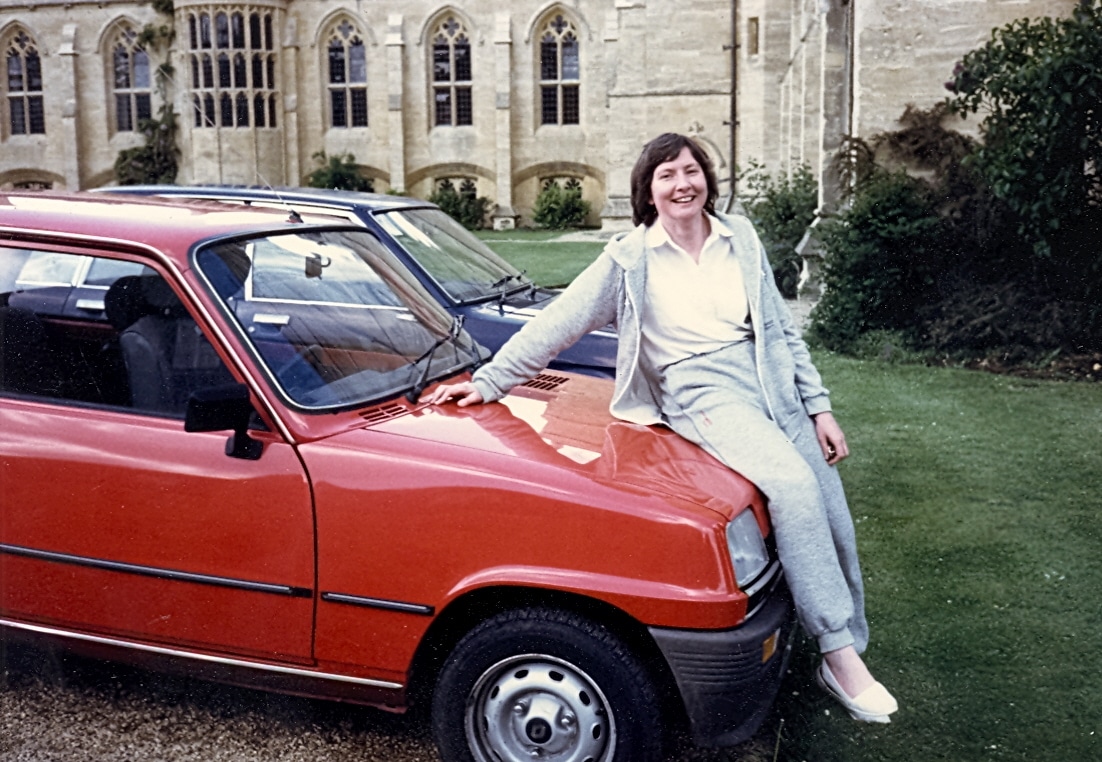
1980 – Reverend Justine Wyatt
Justine Wyatt was appointed as Mansfield’s Assistant Chaplain – the second woman Chaplain in the University.
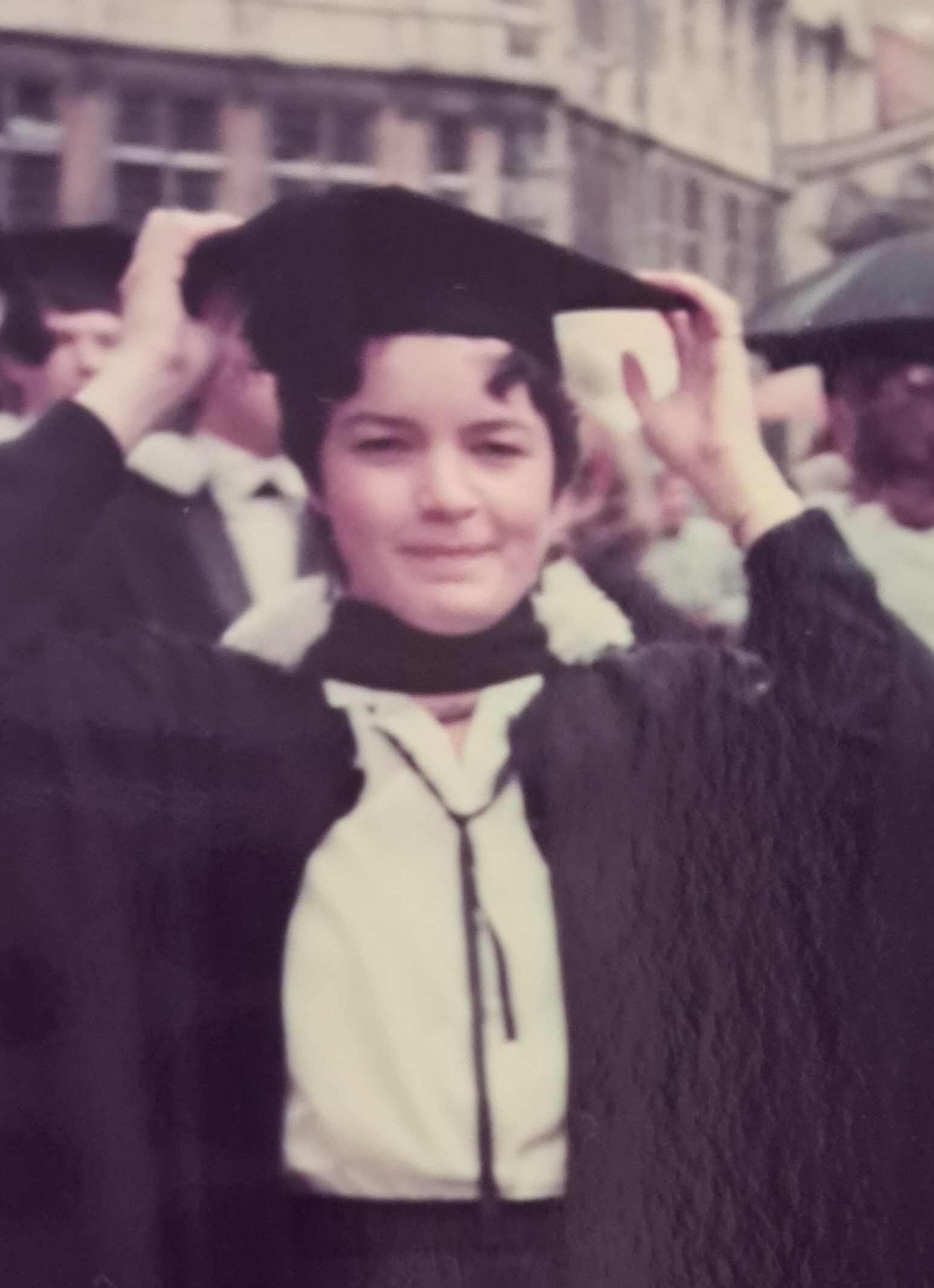
1980 – the second mixed cohort
“It didn’t bother me at all that it had previously been an all-male college, after seven years at an all-girls grammar school I was determined to do some mixing!
“It turned out that I very much enjoyed being part of the tiny female minority. From memory there were only seven girls in the 1980 intake, and had only been six the year before, so it was fun to be in The First Mansfield Ladies’ Eight, ‘first’ because there had never been enough women to crew a boat before.
“My first year at Mansfield surpassed all my expectations of what life at University could be like. It was the most welcoming and friendly place, helped by the high proportion of state school students and the feeling that as we were all in the same ‘rejects’ club’ we had a lot to prove.”
Sarah Harkness (PPE, 1980)
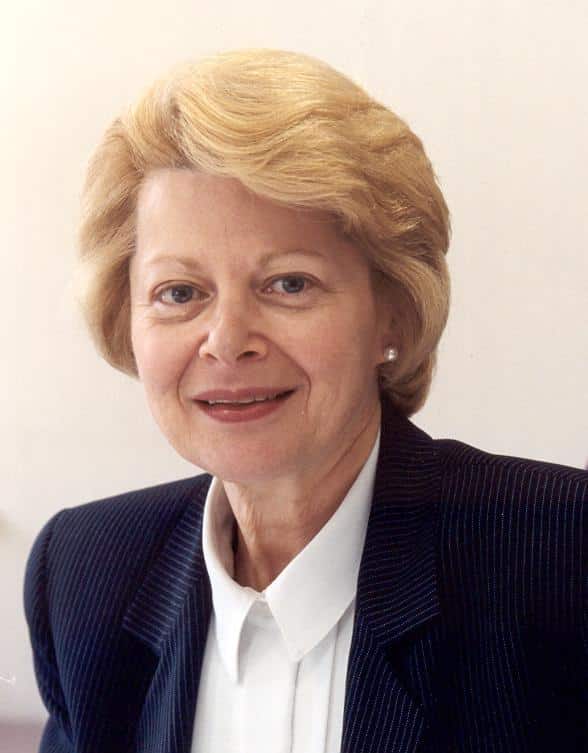
2002 – Diana Walford becomes Principal
Diana Walford is an English clinical haematologist, who has held senior posts in the NHS, the civil service and higher education. She was the first woman to be a Principal at Mansfield, holding the post for 9 years, from 2002 to 2011.
Diana began the successful fundraising of £23m to support facilities development at Mansfield in the 2010s.
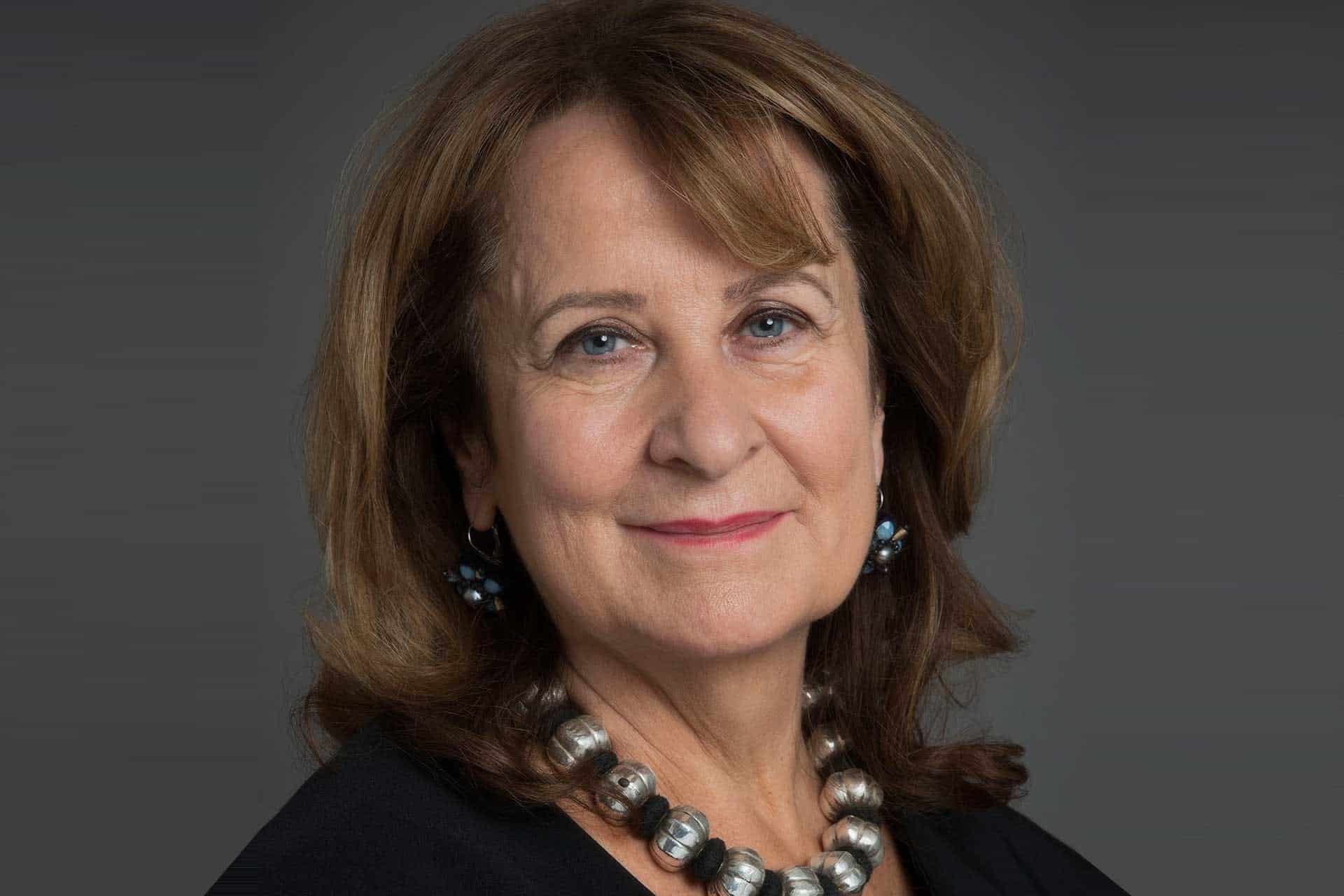
2011 – Principal Helena Kennedy QC, FRSA, Hon, FRSE
Helena Kennedy succeeded Diana Walford as Principal of Mansfield from 2011-2018. Helena is a Scottish barrister, whose expertise include human rights law, civil liberties and constitutional issues. She is also a broadcaster and member of the House of Lords.
During her time as Principal, many facilities were developed at Mansfield College, including the Bonavero Institute of Human Rights.
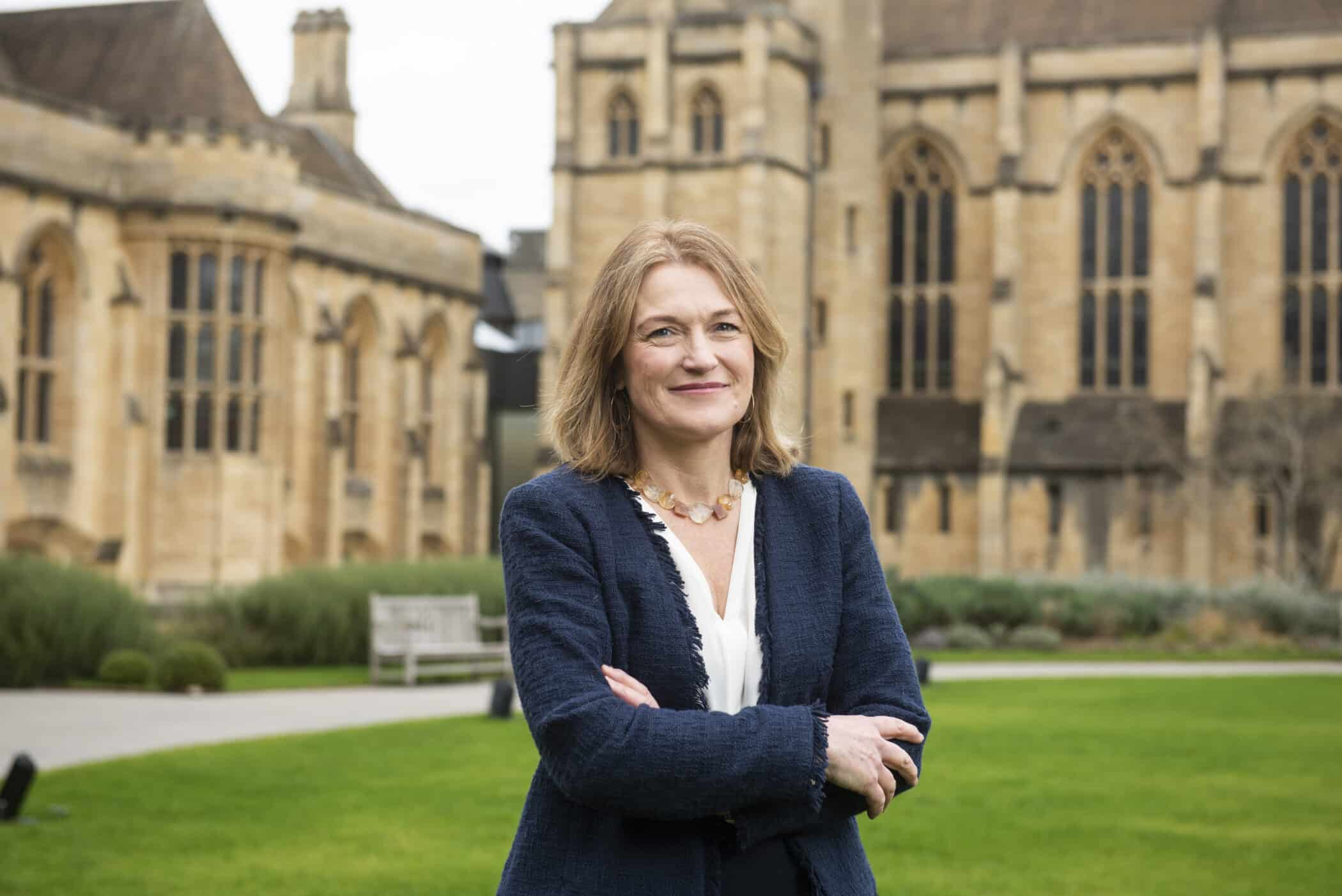
2018 – Helen Mountfield QC becomes Principal
Helen Mountfield succeeded Helena Kennedy as Principal in 2018. She is a founder member of Matrix Chambers, an experienced and award-winning barrister, mediator, legal writer and international judge, with expertise in constitutional law, human rights and equality law, including particular experience of the higher education sector. She has appeared in many cases in the Supreme Court, European Court of Justice and European Court of Human Rights, and plays an active role in public policy.
Helen has given evidence to Parliament on numerous occasions, on issues relating to human rights, counter-terrorism policy, election law and constitutional reform. She was legal advisor to Lord Hodgson’s review of the law on election funding; was co-chair, with Lord Watson, of the Independent Commission on the Future of Work in the Digital Economy; a member of the Royal Society of Arts’ Commission on Drugs Policy; and part of the Disability Rights Commission’s review of barriers to access to the professions.
Helen has been a trustee and director of many non-profit organisations and initiatives, including (currently) Index on Censorship, and (formerly) the Institute for the Future of Work, the Equal Rights Trust, Birthrights, and the National Campaign for the Arts. She is currently Chair with Dame Sally Morgan (Master of Fitzwilliam College, Cambridge) of the advisory board of ‘Close the Gap’, a collaboration between the Universities of Oxford and Cambridge to widen participation from Black and Asian British students in graduate research work.
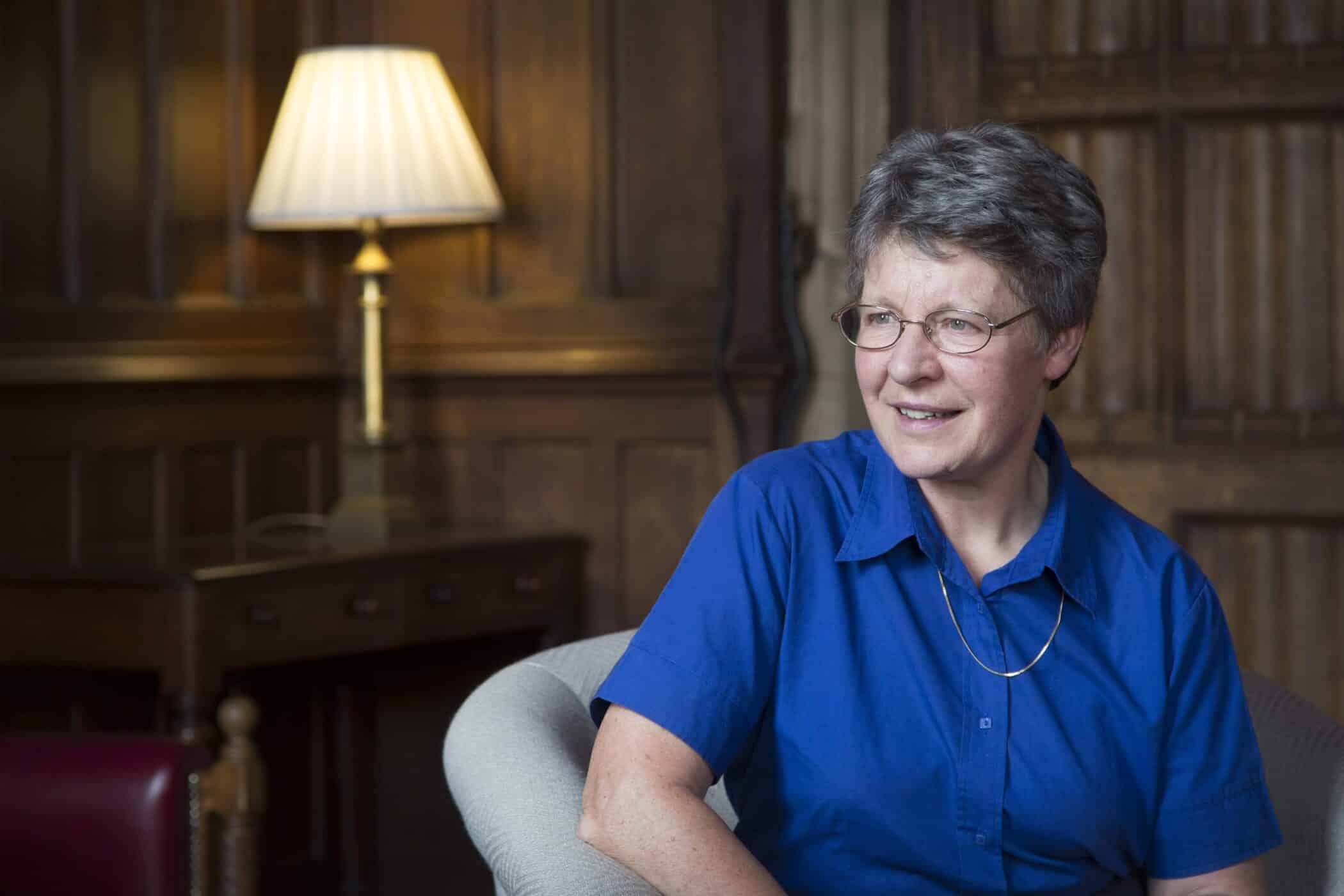
2018 – Dame Professor Jocelyn Bell Burnell’s breakthrough
Jocelyn is an astrophysicist from Northern Ireland who discovered the first radio pulsars back n 1967. Her supervisor went on to receive the Nobel Prize in Physics in 1974.
In 2018 she was awarded the Special Breakthrough Prize in Fundamental Physics. She donated the £2.3 million prize money to help unrepresented groups seeking to become physics researchers in a bursary known as the ‘Bell Burnell Graduate Scholarship Fund’.
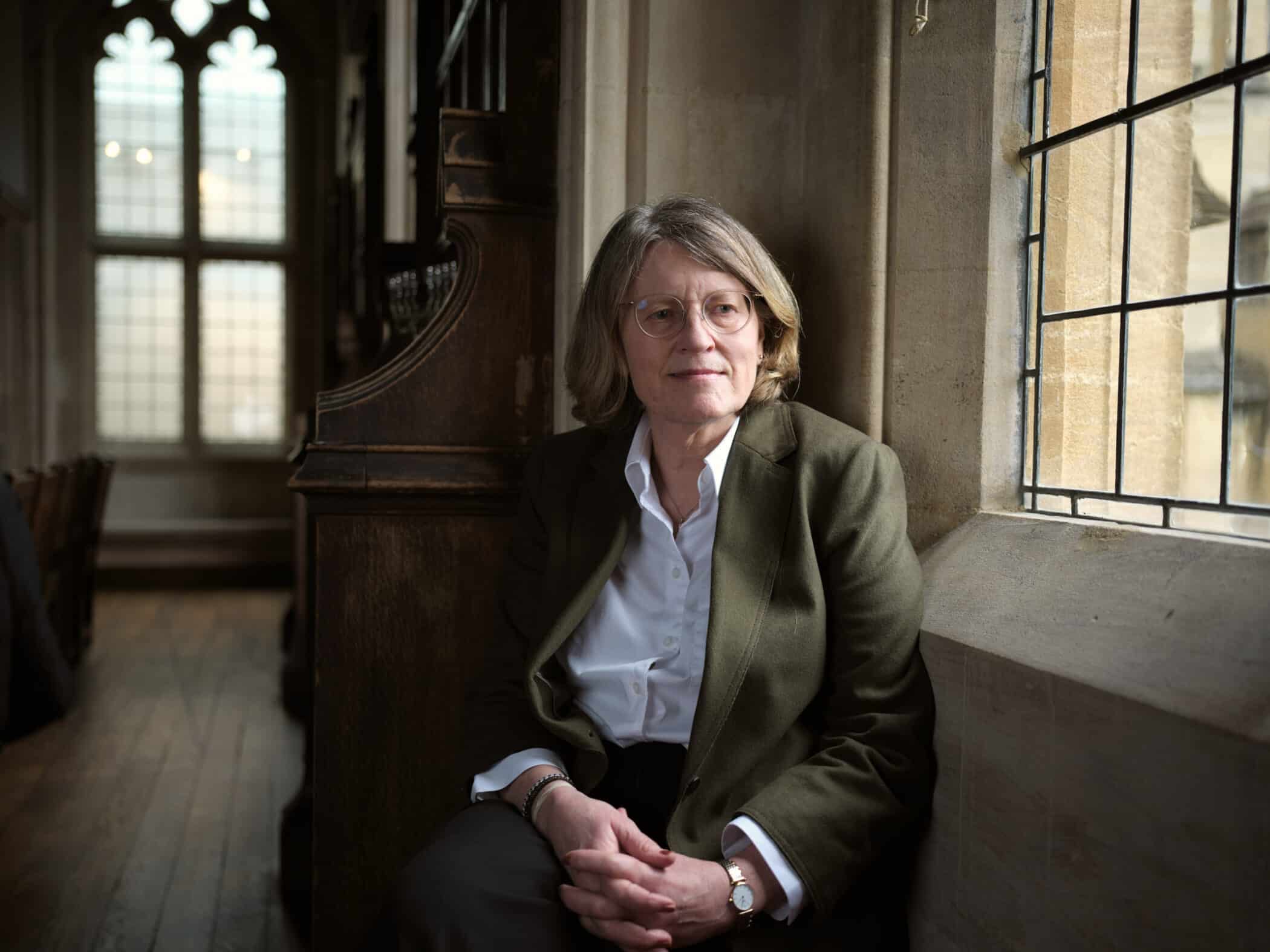
2019 – Professor Helen Margetts’ OBE
A Turing Fellow and Director of the Public Policy Programme at The Alan Turing Institute, Helen’s fields of research include the relationship between technology, politics, public policy and government. She sits on the UK government’s Digital Economy Council, the Home Office Scientific Advisory Council, the WEF Global Agenda Council on Agile Government, and the Ada Lovelace Institute for Data Ethics.
In the 2019 New Year’s Honours List Helen was awarded an OBE for services to social and political science, elected as a Fellow of the British Academy, and also took up a visiting appointment as the John F Kluge Senior Chair in Technology and Society at the Library of Congress.
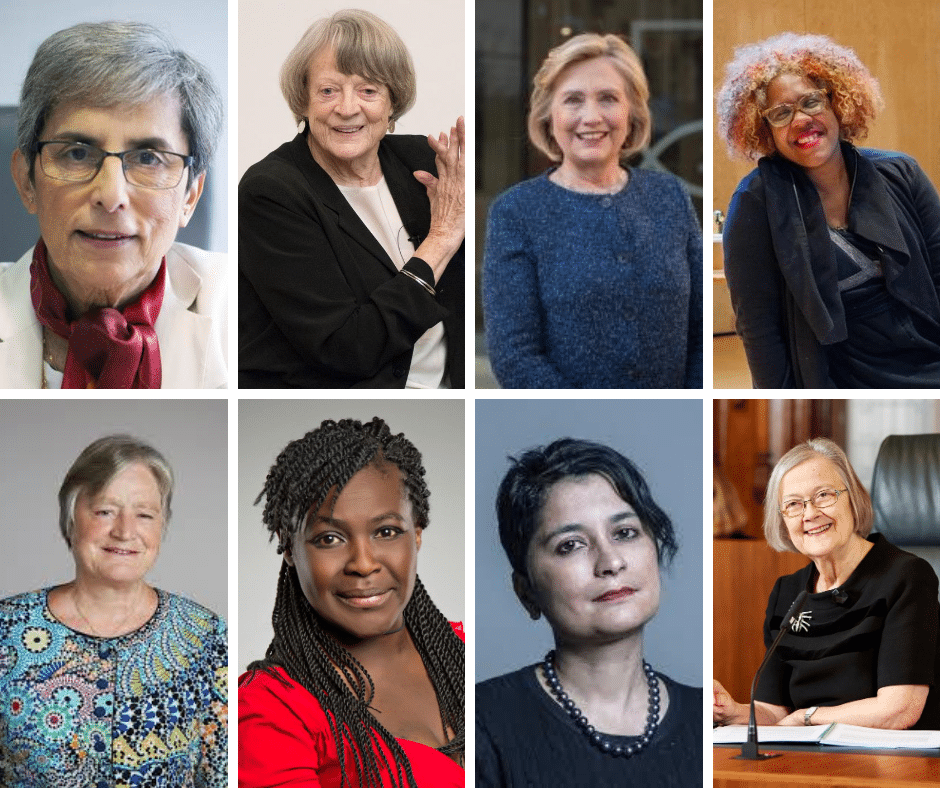
Honorary Fellows
We’re proud to have so many world-changing women as Honorary Fellows. Here are just a few who are leading the way in their respective fields and who we’re proud to consider part of the Mansfield community.
From L-R: Prof Dame Parveen Kumar CBE DBE BSc MD FRCP FRCP (E), Dame Maggie Smith CH DBE, Hillary Rodham Clinton, 67th Secretary of State of the United States of America, Errollyn Wallen MBE, Prof Dame Julia Slingo DBE FRS, Dr Maggie Aderin-Pocock, Baroness Shami Chakrabarti CBE, and Baroness Hale Richmond DBE PC LLD FBA.
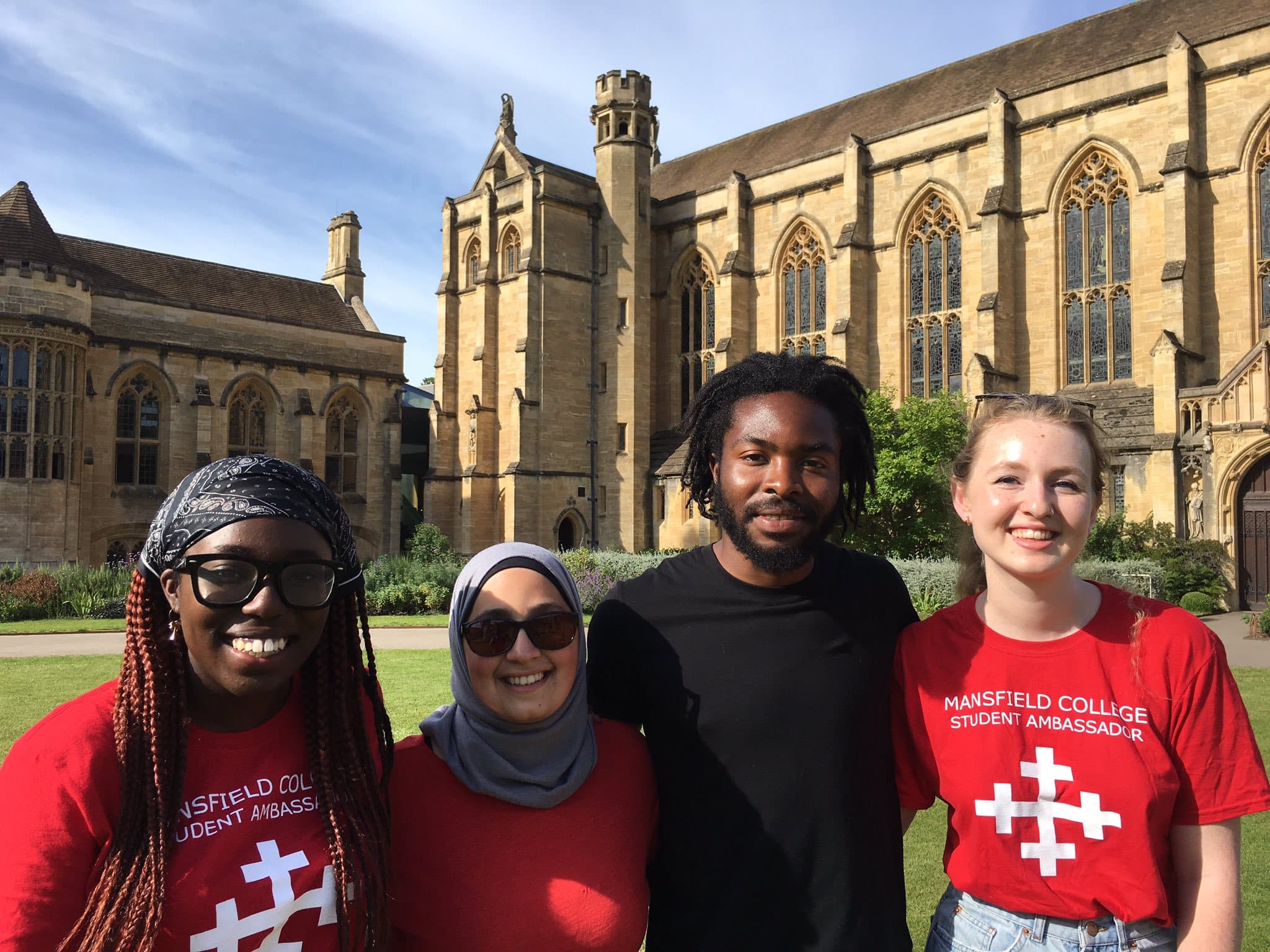
Looking to the future
We’ve come a long way since 1913, but there’s still much to be done to make education, academic life and ideas available to a broad range of people without discrimination.
Mansfield College values diversity and difference as necessary elements of a vibrant intellectual culture. Our inclusive community is based on equality and respect, and we are determined to continue our work to democratise access to an Oxford education.

